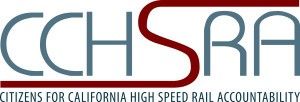Did Rail Authority flout sunshine law?

 At a recent meeting of the California High-Speed Rail Authority, a board member announced a closed executive session but provided no exception as required by the state’s sunshine law, citizen attendees said.
At a recent meeting of the California High-Speed Rail Authority, a board member announced a closed executive session but provided no exception as required by the state’s sunshine law, citizen attendees said.
State law requires government bodies to notify the public of closed, or executive, sessions in advance and to specify what exception under the open meetings law – such as pending litigation or personnel matters – allows for the closed meeting. The notice for the March 10 finance and audit committee meeting made no mention of a closed session.
“It seems quite possible that the Board violated the requirements” of state open meetings law, said Gary Patton, a lawyer and former state and county official who heads a nonprofit that opposes the rail project. “The public is permitted to be present for everything, except for very specific issues, legal issues and a few other exceptions such as personnel issues.”
The rail authority, though, says what transpired was not an executive session, but a “private discussion with a member of Authority staff” attended by four board members – less than the Authority’s five-member quorum.
“The Authority’s Chief Legal Counsel was present to assure that no Bagley-Keene (open meetings law) violations occurred,” a rail authority spokeswoman said by email. “Board members are at liberty to meet privately with staff to discuss high-speed rail matters.”
A tight squeeze
On March 10, a dozen residents of the Central Valley traveled for hours to Sacramento to attend a meeting of the agency that is planning a $68 billion rail project through their community.
Since they had made the journey, they attended the Finance and Audit Committee meeting held prior to the meeting of the full board. The subcommittee consists of Michael Rossi, a retired vice chairman of BankAmerica Corporation, and Tom Richards, CEO of a Fresno-based real estate investment company.
 “The room was very small, so small that you would have to jump over someone’s briefcase to leave the room,” said Frank Oliveira, co-chair of the residents’ group, the Citizens for California High-Speed Rail Accountability, which opposes the rail project.
“The room was very small, so small that you would have to jump over someone’s briefcase to leave the room,” said Frank Oliveira, co-chair of the residents’ group, the Citizens for California High-Speed Rail Accountability, which opposes the rail project.
In fact, there were people who stood around the door leading into the meeting to listen because there was no room for them to enter. According to Oliveira and another member of the citizens’ group, Alan Scott, their presence seemed to inhibit conversation.
No exception to open meeting law
Four board members were in attendance: Rossi, who chairs the committee; Richards; Lynn Schenk, an attorney; and the authority’s newest board member, former state Sen. Lou Correa.
At the end of the meeting, Rossi asked Schenk to stay and pointed to various others in the room to stay as well, Oliveira and Scott said.
Rossi told the citizens they were now going into an “executive staff meeting,” Scott said, and provided no exception under open meetings law.
Rossi, Richards and two other board members stayed behind, rail authority spokeswoman Lisa Marie Alley said. Contacted by CalWatchdog March 27, Rossi did not respond directly to an emailed request for comment but forwarded the message to Alley.
“Legally, there is no exception to the state’s open meeting law, based on the Authority’s desire to have a private meeting,” Patton said.
You can’t legally meet in a closed session because the agency “wants to have a frank and open discussion among only members on a matter of controversy, or when sensitive financial information is at issue,” Patton said. “From all appearances, the public should have been allowed in this meeting.”
Bagley Keene Open Meeting Act
Members of the public can take government agencies to court for open meetings act violations.
According to the Bagley Keene Open Meeting Act:
“Each member of a state body who attends a meeting of that body in violation of any provision of this article, and where the member intends to deprive the public of information to which the member knows or has reason to know the public is entitled under this article, is guilty of a misdemeanor.”
Court costs and fees may be awarded to the plaintiff if a state body is found in violation. However, no member would be personally liable; the state would pay from tax dollars.
“To the extent that a body receives information under circumstances where the public is deprived of the opportunity to monitor the information provided, and either agree with it or challenge it, the open-meeting process is deficient,” an AG handbook on open meetings law says.
Here is an updated 2015 guide to the Bagley Keene Open Meeting Act
Kathy Hamilton is the Ralph Nader of high-speed rail, continually uncovering hidden aspects of the project and revealing them to the public. She started writing in order to tell local communities how the project affects them and her reach grew statewide. She has written more than 225 articles on high-speed rail and attended hundreds of state and local meetings. She is a board member of the Community Coalition on High-Speed Rail; has testified at government hearings; has provided public testimony and court declarations on public records act requests; has given public testimony; and has provided transcripts for the validation of court cases.
Related Articles
GOP vs. bullet train
Republicans in California no longer have much influence. But they still can exercise the bully pulpit. They did so last
Noted Lawyer Slammed in Judicial Gulag
JULY 5, 2011 By RICHARD TRAINOR When I met Richard Fine in the summer of 2001, he was riding high.
Bills Address High-Speed Gravy Train
Katy Grimes: Gov. Jerry Brown announced over the weekend that he plans to fund California’s High-Speed Rail system through the state’s


